
Guests
- U. W. ClemonAlabama’s first African-American federal judge.
- Ted Shawdirector of the Center for Civil Rights at the University of North Carolina School of Law.
As thousands gather to mark a pivotal moment that prompted Congress to pass the Voting Rights Act of 1965, we speak with U. W. Clemon, Alabama’s first African-American federal judge. He says the current U.S. Supreme Court is “amorous of state rights, which we thought we had fought a great Civil War over, thought we had settled that issue,” and argues this is a dangerous trend that has allowed states to enact new restrictions on the right to vote that are “similar to those imposed 50 years ago.” Clemon is so concerned that he says “this Supreme Court is a flamethrower, and it is in my judgment the worst Supreme Court in terms of civil rights since 1857, the decision that caused the Civil War.” Clemon was referring to the court’s verdict in Dred Scott v. Sandford in 1857, which intensified national divisions over the issue of slavery when it found Scott did not have the legal right to request his freedom. We also speak with Rep. Barbara Lee (D-CA); Rev. Raphael Warnock, pastor of Ebenezer Baptist Church; and Ted Shaw of the Center for Civil Rights at the University of North Carolina School of Law.
Transcript
TED SHAW: So, this is Judge U. W. Clemon, who was a federal judge and, before that, longtime civil rights lawyer.
AMY GOODMAN: Your thoughts about 50 years ago, Bloody Sunday, what people were marching for, what they got bloodied for, and where we are today, Judge?
U. W. CLEMON: Well, I think that much of the meaning of what happened 50 years ago has been lost in the fact that two years ago the Supreme Court took away the heart of the Voting Rights Act. And so, it’s important for us to be here today to remind ourselves that that fight is as important today as it was a half-century ago.
AMY GOODMAN: Talk about the importance of the courts. I mean, there are activists on the ground. You’re a judge.
U. W. CLEMON: Well, I guess it was Charles Evans Hughes who once said that the Constitution means at any given point in time only what five members of the Supreme Court says that it means. And we have seen, in the last quarter-century, a Supreme Court as reactionary as the Taney court which decided the Dred Scott decision. This court today is as amorous of states’ rights, which we thought we had fought a great Civil War over, thought we had settled that issue—but this Supreme Court has resurrected states’ rights, and it’s now a constitutional principle. And so, when you turn it back over to the states, then we see the kinds of things that we have seen in terms of restrictions on the right to vote, restrictions that have been imposed since the Shelby County case, much similar to the restrictions that were imposed 50 years ago.
AMY GOODMAN: Would you call the Supreme Court today a Jim Crow court?
U. W. CLEMON: Well, I would say that this Supreme Court is—yes, it’s a flamethrower. And it is, in my judgment, the worst Supreme Court in terms of civil rights since, as I said, 1857, the decision that caused the Civil War.
AMY GOODMAN: And, Ted Shaw, would you like to say something?
TED SHAW: There’s such a fear among many people in this country about the demographics of change, and it’s causing them to literally act in ways that are mad. I don’t mean angry mad; I mean like insane mad. And it’s infected our politics. And race is very much at the center of a lot of these issues. They’re afraid of not being in the majority anymore, even though they’ll still have disproportionate power. So, you know, I think we’re in a dangerous time and a dangerous place. The Voting Rights Act is still important, the right to vote sacred. This is political disempowerment that’s followed from Shelby County, or potential political disempowerment. So, the struggle continues. It may change in some ways, but it continues.
AMY GOODMAN: That was Ted Shaw, now with the University of North Carolina’s Center for Civil Rights. Coming up, John Lewis, President Obama and Diane Nash.

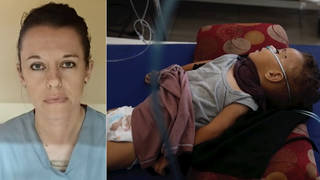
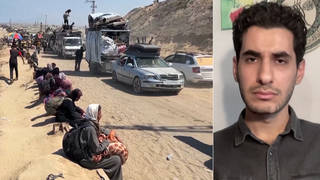
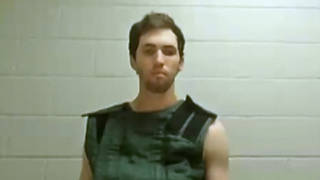
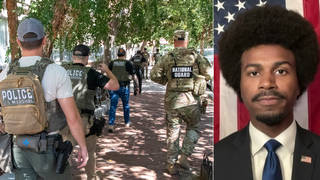





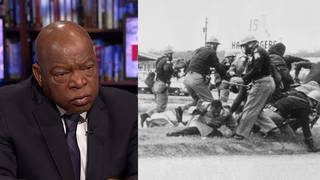
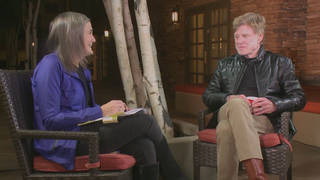
Media Options